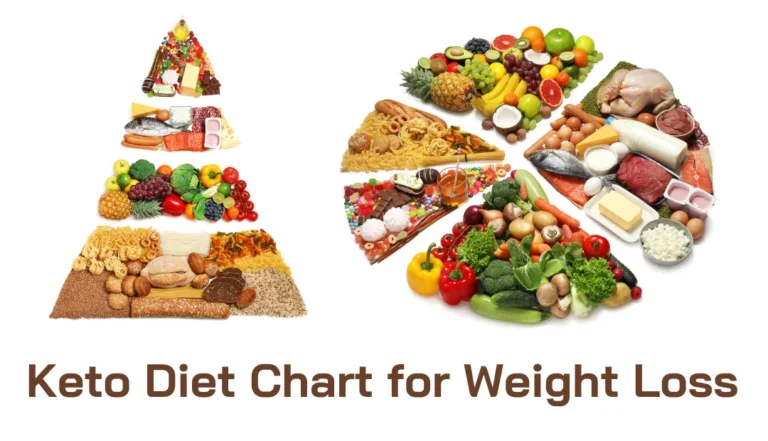Keto Diet for Kidney Disease: Managing Health While Following a Low-Carb Lifestyle
The Keto Diet has gained popularity for its potential to aid in weight loss and improve various health markers. If you have kidney disease, you might wonder how this diet can affect your health. While the Keto Diet may offer some benefits for weight management, it’s crucial to be aware of the specific risks it can pose for those with kidney issues.

Managing your diet is essential when dealing with kidney disease, and the Keto Diet follows strict principles that can complicate an already delicate balance. With a focus on low carbohydrates and high fats, this diet significantly alters your usual eating patterns. It is important to understand how to adapt the Keto approach to suit your kidney health needs.
Before diving into the specifics of the Keto Diet for kidney disease, it’s wise to weigh both its potential advantages and drawbacks. An informed decision can help you navigate your health goals while considering your kidney condition.
Key Takeaways
- The Keto Diet can impact your kidney health in various ways.
- Adapting the diet for kidney disease requires careful planning.
- Awareness of risks is crucial for managing kidney disease effectively.
Understanding Kidney Disease

Kidney disease affects how your kidneys function and can lead to serious health issues. Knowing the functions of the kidneys, the stages of kidney disease, and how it impact nutrition and metabolism is crucial for managing your health.
Functions of the Kidneys
Your kidneys play vital roles in maintaining your health. They filter waste products from your blood and produce urine, which removes toxins. Kidneys also regulate essential electrolytes, including sodium, potassium, and calcium, and help balance fluids in your body.
Additionally, kidneys produce hormones that control blood pressure and stimulate red blood cell production. Proper kidney function ensures that your body maintains healthy blood pressure levels and sufficient oxygen supply.
Stages of Kidney Disease
Kidney disease is classified into five stages, ranging from mild to severe.
- Stage 1: Kidney damage is present, but function is normal (eGFR ≥ 90 mL/min).
- Stage 2: Mild reduction in function (eGFR 60-89 mL/min).
- Stage 3: Moderate reduction (eGFR 30-59 mL/min).
- Stage 4: Severe reduction (eGFR 15-29 mL/min).
- Stage 5: Kidney failure (eGFR < 15 mL/min), often requiring dialysis or transplant.
Understanding these stages helps you monitor your health and make necessary lifestyle changes.
Impacts on Nutrition and Metabolism
Kidney disease significantly impacts your nutrition and metabolism. As kidney function declines, your body struggles to filter waste efficiently. This can lead to nutrient imbalances, particularly concerning protein, potassium, and phosphorus.
You may need to modify your diet based on your stage of kidney disease. For example, a lower protein intake might be recommended in later stages to reduce strain. Additionally, controlling sodium is essential to manage blood pressure.
Consulting a healthcare provider or a dietitian specializing in kidney health is important for personalized dietary recommendations.
The Role of Diet in Kidney Disease Management

Diet plays a crucial role in managing kidney disease. What you eat can affect how well your kidneys function and your overall health.
Key dietary components to consider include:
- Protein: Your protein intake may need to be adjusted. Too much protein can strain your kidneys. A moderate intake is often recommended.
- Sodium: Reducing sodium helps control blood pressure and decrease fluid retention. Aim for a low-sodium diet.
- Potassium: Depending on your kidney function, you may need to limit potassium. High potassium levels can be dangerous.
- Phosphorus: Similar to potassium, phosphorus should be monitored. Too much phosphorus can lead to bone and heart issues.
Foods to focus on:
- Fruits and vegetables: Opt for those lower in potassium, such as apples, berries, and grapes.
- Whole grains: Choose whole grains like brown rice and quinoa, which provide nutrients and fiber.
- Healthy fats: Include sources of omega-3 fatty acids, such as fish and walnuts.
- Low-fat dairy: These options can provide protein without excessive phosphorus.
Consideration of special diets:
Certain diets, like the ketogenic diet, are gaining attention for their potential benefits in kidney disease management. Research suggests that ketogenic diets could slow kidney function decline in some patients. This may be due to reduced inflammation and oxidative stress.
Always consult with a healthcare provider or dietitian before making significant dietary changes to best support your kidney health.
Principles of the Keto Diet
The ketogenic diet focuses on a specific ratio of macronutrients. It aims to shift your body into a state of ketosis, where it burns fat for fuel instead of carbohydrates. Understanding its structure, benefits, and common misconceptions can help you navigate dietary choices effectively.
Macronutrient Distribution
In a ketogenic diet, the macronutrient distribution is crucial. Typically, about 70-80% of your daily calories come from fats, 15-25% from proteins, and only 5-10% from carbohydrates. This low-carb intake forces your body into ketosis, reducing glucose levels and increasing fat breakdown.
Healthy fats can include avocados, nuts, seeds, and olive oil. Proteins should focus on high-quality sources like poultry, fish, and eggs while keeping carbohydrate intake to low-glycemic vegetables. This balance is key to achieving and maintaining ketosis effectively.
Potential Benefits
The keto diet offers several potential benefits, especially for individuals with certain health conditions. Some research suggests it may help slow the progression of kidney disease by reducing inflammation and improving kidney function.
Additionally, many people experience weight loss, improved blood sugar control, and enhanced mental clarity on this diet. Nutritional ketosis may also decrease the levels of inflammation and oxidative stress in the body, which can be beneficial for overall health.
Common Myths and Misconceptions
Many myths circulate regarding the ketogenic diet. A common misconception is that it is unsafe for kidney health. However, with careful monitoring and proper electrolyte management, the diet can be safe for some, particularly in earlier stages of kidney disease.
Another myth is that all fats are harmful. In reality, healthy fats play a vital role in the ketogenic diet. It is important to focus on quality over quantity. Understanding these myths can help you make informed choices while following a ketogenic approach.
Adapting Keto for Kidney Health
When following a keto diet while managing kidney health, adjustments are essential. You need to pay close attention to protein intake, hydration, and electrolyte balance. These factors play a significant role in supporting kidney function and overall health.
Modifying Protein Intake
High protein intake is common in keto diets, but it can be a concern for kidney health. You should focus on high-quality protein sources. Choose lean meats, fish, eggs, and plant-based proteins.
Aim for a moderate protein intake, tailored to your specific health needs. Consulting with a healthcare professional can help you find the right amount for your kidney condition.
Monitor your body’s response to protein intake. If you notice any signs of stress, adjust your diet accordingly. Maintaining these guidelines can help protect your kidneys while following keto.
Importance of Hydration
Hydration is crucial on a keto diet, especially for kidney health. A low-carb diet can lead to reduced water retention, increasing the risk of dehydration.
Aim to drink plenty of fluids, primarily water. Keeping your urine pale and clear is a good indicator of proper hydration.
You can also include hydrating foods in your diet. Cucumbers, watermelon, and leafy greens not only provide water but also essential nutrients. Consistent hydration supports kidney function and helps eliminate waste.
Electrolyte Balance and Monitoring
On a keto diet, managing electrolytes is important, as low-carb eating can alter your body’s balance. Focus on potassium, sodium, and magnesium levels.
Include foods rich in these electrolytes, such as avocados for potassium and nuts for magnesium. Use salt in moderation to maintain your sodium levels.
Regularly monitor your electrolyte levels, especially if you experience symptoms like cramping or fatigue. Adjust your intake based on your body’s signals. Maintaining a balanced electrolyte profile helps promote kidney health on a keto diet.
Potential Risks and Considerations
When considering the ketogenic diet for kidney disease, it’s essential to understand the specific risks involved. Key areas of concern include nutrient intake, potential interactions with medications, and the importance of monitoring kidney function. Each of these factors plays a crucial role in your overall health.
Nutrients of Concern
A ketogenic diet typically emphasizes high-fat and low-carbohydrate foods. This diet can result in nutrient deficiencies, especially in vitamins and minerals. Key nutrients like potassium, magnesium, and calcium are often lacking.
- Potassium: Necessary for muscle function and heart health, low potassium levels can lead to serious complications.
- Magnesium: Important for metabolic processes; insufficient magnesium can affect energy levels.
- Calcium: Vital for bone health, low intake can increase the risk of osteoporosis.
Consulting with a healthcare provider is essential to ensure you get these nutrients, either through supplementation or food sources that align with your diet.
Medication Interactions
If you are taking medications for kidney disease, be aware that the ketogenic diet may interact with them. Specific medications, especially those for blood pressure and diabetes, can have their effects altered by changes in diet.
- Diuretics: A high-fat, low-carb diet might lead to alterations in fluid balance, which can affect the effectiveness of diuretics.
- Insulin: Changes in diet may impact your insulin needs, requiring adjustments to avoid hypoglycemia.
Always discuss with your doctor or pharmacist how the ketogenic diet might affect your current medications.
Monitoring Kidney Function
Regular monitoring of kidney function is crucial when following a ketogenic diet. The high protein content can put additional strain on your kidneys, especially if you have pre-existing conditions.
- Routine Tests: Have your blood and urine tested regularly. Look for changes in creatinine levels and proteinuria.
- Symptoms: Watch for signs of kidney distress, including swelling, fatigue, or changes in urination.
Being proactive in monitoring will allow you to adjust your diet and prevent further complications. Regular check-ups with your healthcare provider can help you stay on track and make necessary changes.
FAQS About Keto Diet for Kidney Disease
If you’re considering a ketogenic diet for kidney disease, you may have many questions. This section addresses common inquiries to help you understand the impacts and precautions of this diet on kidney health.
Can a ketogenic diet reverse kidney damage?
Current research suggests that some individuals with moderate kidney disease may benefit from a ketogenic diet. It has been observed that nutritional ketosis could potentially slow or reverse the decline in kidney function. Always consult a healthcare professional before making changes.
What dietary practices are beneficial for individuals with kidney disease?
For kidney health, it’s important to focus on high-quality fats, low protein intake, and adequate hydration. Foods like avocado and olive oil can be kidney-friendly and provide necessary nutrition. Always tailor your diet based on your specific health status.
What precautions should be taken to protect kidney function while on a keto diet?
You should monitor your protein intake carefully. High protein levels can stress your kidneys, especially in individuals with existing kidney disease. Regular check-ups with your doctor can help ensure your kidneys remain healthy while on this diet.
How does a keto diet affect patients with stage 3 kidney disease?
Patients with stage 3 kidney disease need to be cautious with a ketogenic diet. There might be concerns about high protein intake and its implications. Consulting with a healthcare provider specialized in kidney health is essential to determine a safe dietary plan.
Are there any associations between a keto diet and changes in creatinine levels?
Some studies indicate that following a ketogenic diet may lead to changes in creatinine levels. Monitoring these levels is important, as they can indicate how well your kidneys are functioning. Regular testing helps in understanding the impact of dietary changes on kidney health.
Does following a ketogenic diet contribute to the formation of kidney stones?
A ketogenic diet can potentially increase the risk of kidney stones due to higher levels of certain substances in urine. Staying properly hydrated and discussing dietary choices with a doctor can help reduce this risk. Your healthcare team can guide you on safe practices to prevent stone formation.






